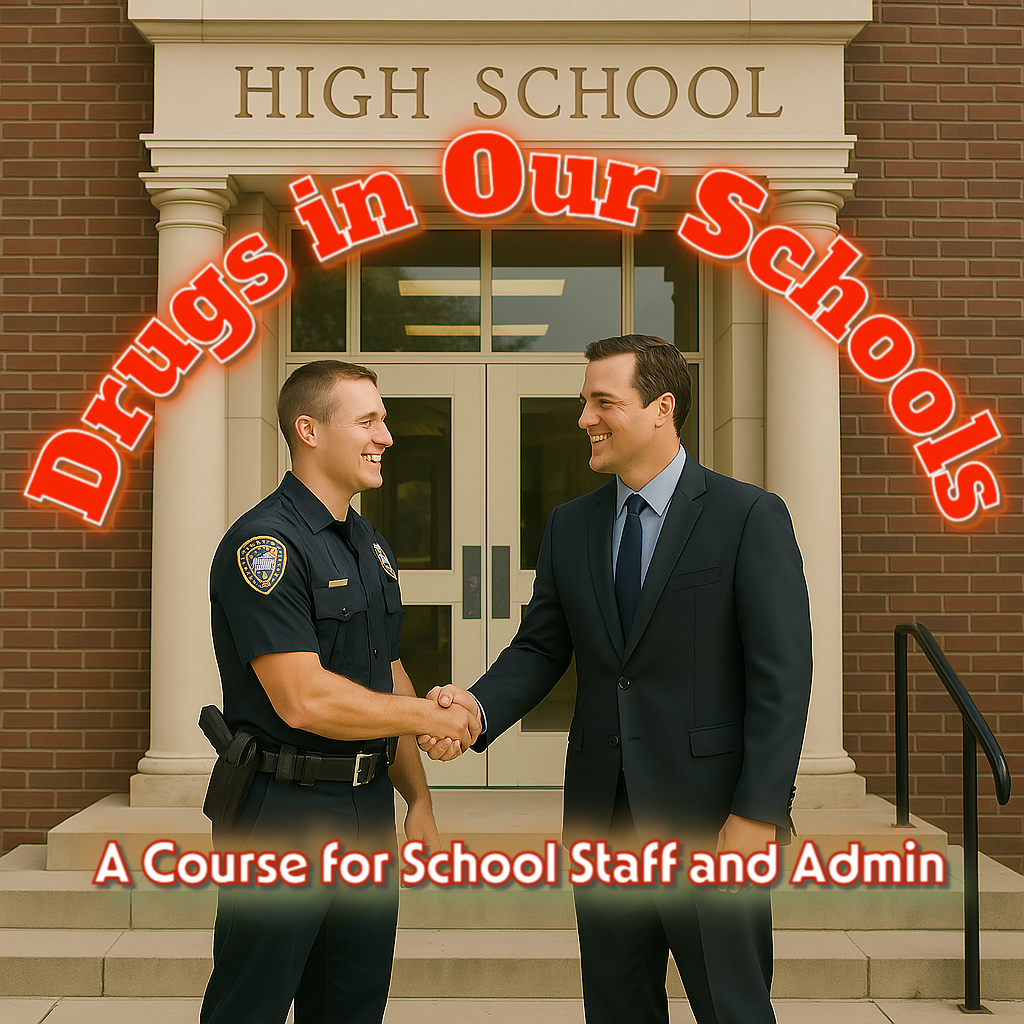Course Overview:
"Drug Trends and Overdose Prevention for Education Professionals" is a partial-day, two-hour training designed to equip school employees and staff with the knowledge and specialized skills necessary to identify, and address drug-related activities within educational settings as well as identify and reverse the effects of a drug overdose. Led by experienced narcotics investigators, this course focuses on the unique challenges faced by school employees and staff including drug recognition, fentanyl cautions/education, drug trends, understanding legal considerations, and collaborating with school resource officers to maintain a safe learning environment. Participants will learn to recognize illicit drugs, drug related conversations, social media trends, sings of drug use, sings of addiction, and will be armed with the knowledge and confidence to identify and reverse an overdose if it occurs. This course will prepare your staff with the necessary training to keep your campus safe and informed.
(Contact us to bring this training to your campus)
Key Topics Covered:
Youth Drug Trends and Identification: Explore current drug trends among students, including the identification of substances, paraphernalia, and concealment methods.
Fentanyl Education: learn the latest trends and threats that fentanyl presents. Be armed with knowledge, not fear.
Legal Considerations in School Settings: Understand the legal framework governing search and seizure and the role of SROs in enforcement.
Collaboration with the SRO: Learn effective strategies for working with your SROs and officers within schools, including limitations, drug testing, and evidence collection/ storage.
Overdose Reversal: Identify signs of addiction, drug overdoses, and know what to do in the critical moments of an overdose.
Course Overview:
"Drug Trends and Overdose Prevention for Education Professionals" is a partial-day, two-hour training designed to equip school employees and staff with the knowledge and specialized skills necessary to identify, and address drug-related activities within educational settings as well as identify and reverse the effects of a drug overdose. Led by experienced narcotics investigators, this course focuses on the unique challenges faced by school employees and staff including drug recognition, fentanyl cautions/education, drug trends, understanding legal considerations, and collaborating with school resource officers to maintain a safe learning environment. Participants will learn to recognize illicit drugs, drug related conversations, social media trends, sings of drug use, sings of addiction, and will be armed with the knowledge and confidence to identify and reverse an overdose if it occurs. This course will prepare your staff with the necessary training to keep your campus safe and informed.
(Contact us to bring this training to your campus)
Key Topics Covered:
Youth Drug Trends and Identification: Explore current drug trends among students, including the identification of substances, paraphernalia, and concealment methods.
Fentanyl Education: learn the latest trends and threats that fentanyl presents. Be armed with knowledge, not fear.
Legal Considerations in School Settings: Understand the legal framework governing search and seizure and the role of SROs in enforcement.
Collaboration with the SRO: Learn effective strategies for working with your SROs and officers within schools, including limitations, drug testing, and evidence collection/ storage.
Overdose Reversal: Identify signs of addiction, drug overdoses, and know what to do in the critical moments of an overdose.
